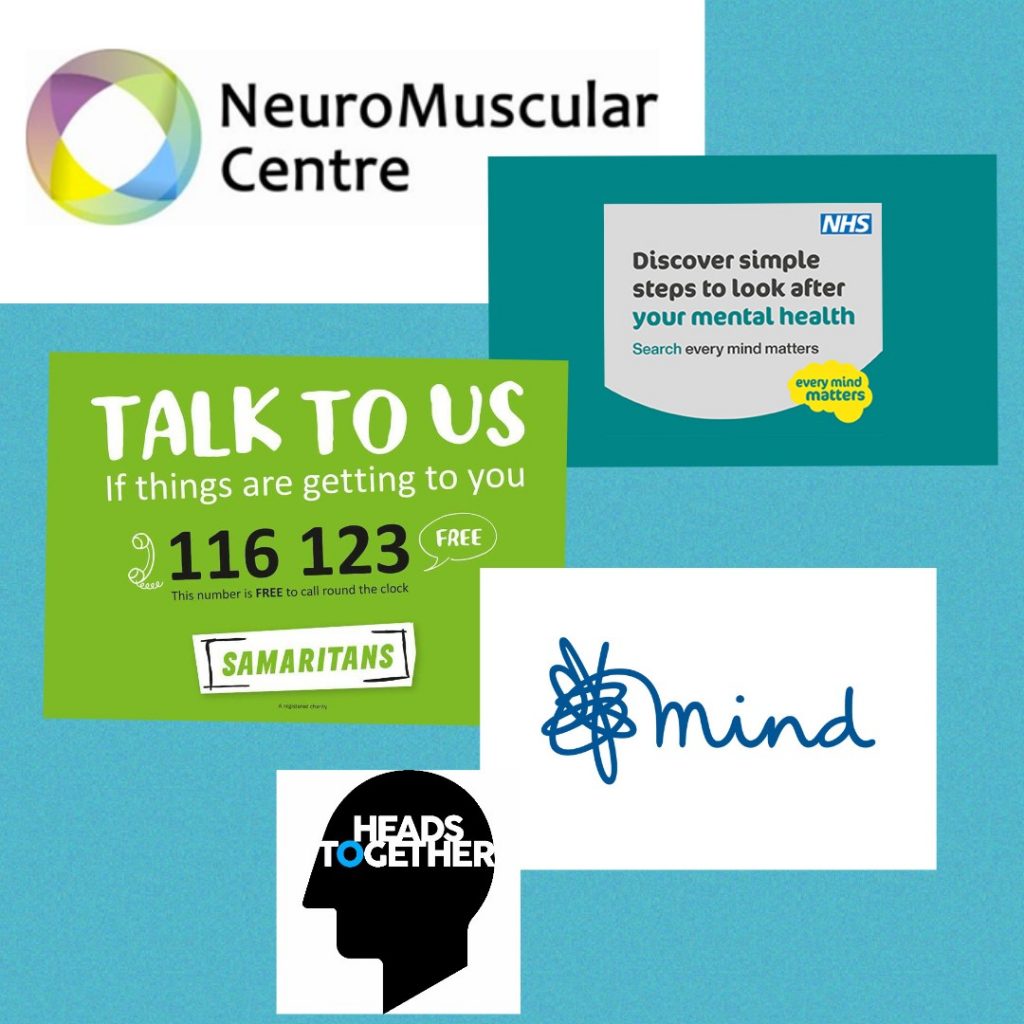I began this not knowing what to expect, but was intrigued to learn. The first session saw Bryn, a physiotherapist from the NMC, explaining how the body reacts internally depending on the level of intensity of the physical activity. He told us how exercise, e.g participating in an organised (zoom) class can be more beneficial to the body, when done as well as regular day-to-day physical activity.
Bryn then spoke of how mitochondria create ATP through respiration in the cells, which is the energy needed for organs to function. The more we exercise the more mitochondria we will produce, so in theory repeated exercise should help with energy production.
Of course, when you a have a condition like muscular dystrophy or mitochondrial disease. This is much harder, as the muscles need coaxing.
*** it’s important to say that if you do have a health condition, particularly affecting the heart/lungs, then please speak to your specialist***
After discussing how necessary it is to warm up and stretch before a work out, the session progressed.
Bryn made it interactive and finding out our experiences, our thoughts and feelings towards exercise as patients with a neuromuscular condition by doing regular polls.
Part 2 was focused on pain. We were asked to describe pain. Dystonia is a kind of pain that hums, like an insect hovering in the air, its annoying with the constant buzzing. I’m sure those of you untouched by dystonia find this hard to imagine, which is why pain is so difficult to define. Pain is a sensation of discomfort caused by nerve fibres reacting to shock, sending messages sent to the brain. Often, if we are in pain, it overtakes our thoughts and it’s all we can think of. Exercise can cause pain, as muscles unused to moving are stretched. If exercise has been prescribed, it can be good to persevere and give your muscles time to adjust. I found when I began yoga last summer, during the first few times, my muscles were screaming at me, ‘no! What are you doing?’, but after a few weeks, my stamina and strength built up, and soon they were saying, ‘ ok, I can do this.
The 3rd section looked at mental health. To quote Jane Austen, “It’s is a truth Universally acknowledged that exercise can improve mental health by releasing positive, feel good’ hormones.” A few years ago, I studied ‘understanding mental health’, although as the tutor pointed out, it was more about understanding mental illnesses. I learnt that we all have a mental health, the difficulty is maintaining it as positively as possible. What Bryn said reminded me of this. In this current climate of social isolation, fear of Covid, general life worries, it can be hard to stay positive. These tips were shared:
*limit your news/ social media exposure.
* Distraction techniques are great.
*Talk
* Reach out.
There are so many organisations offering counselling to people of all ages. If you just want to chat, call a friend or family member.
We hope you have inspired you to become a Leigh Network challenge hero and given you the motivation to take on your own challenge in time for Spring, whilst fundraising in support of Leigh Network.


